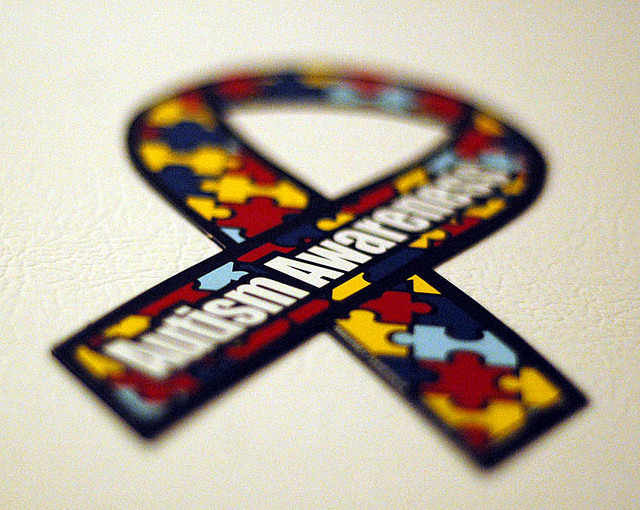Danielle Courtney | Staff Writer
People always ask me about my relationship with my autistic older brother. Sometimes I happily recite cute anecdotes from our childhood, but often I find their questions uncomfortable and try to change the conversation as quickly as possible. I’d rather snap at them that it’s none of their business but I don’t. Instead I try and assure them it’s just like any sibling relationship. I rarely mention his autism to people I know. It can be months or years into a friendship before the word is ever spoken. The best thing my parents ever did was to send me to a siblings of autistic children camp: quickly it became apparent that many other people had the same kind of relationship and that it varied little from my regular friends. That’s the short answer. My relationship with him is completely normal.
That’s the short answer. My relationship with him is completely normal.
We fight over the television, we walk the dog together, we have tickle fights that I always win, and if he doesn’t want me to have something he impressively dangles it above my head from his lofty 6’2 reach. Over Christmas we saw Dumb and Dumber 2 and laughed at all the same gags. I steal his hoodies because they’re cosier, and he likes Taylor Swift even more than I do.
My relationship with him is perfectly normal. If anything, we’re closer than many of my friends are to their brothers and sisters. They grow apart, or have nothing in common. I thought we must be different, as my brother refuses to speak on the phone. I can be gone away for a month and not once hear his voice or receive a message. But other sets of siblings don’t talk to each other for longer stretches of time, even when they live in the same house. They’re intentionally horrible to each other, have less in common and sometimes live in opposite sides of the world.
His achievements are all of ours. His Junior Cert Art grade hangs pride of place in our hall, and his various athletics medals litter our shelves. The family’s proudest moment occurred this summer, when he competed for Team Munster at the 2014 Special Olympics Ireland Games. The sun beat oppressively beat down on us at the UL campus, as we stood on the sidelines roaring support like a pack of hyenas with 3,000 other supporters.
His achievements are all of ours. His Junior Cert Art grade hangs pride of place in our hall, and his various athletics medals litter our shelves.
Perhaps instead of asking about our relationship, people want to know what it’s like growing up with an intellectually disabled sibling. It was often difficult: the four year age gap flipped and I, the verbose little girl, would speak for him, helping him get things for my mom in town, doing his homework with him, placing myself between him and random dogs he was terrified of. I would be in charge of his medication, sit with him when he gets agitated several times a day, make food for him, accept that his outbursts, though mostly harmful to himself, meant my things could be broken at any time.
When I was five he took the car keys, and my parents watched in horror from across our lawn as I stood on our drive, in front of the moving vehicle. He pulled the steering wheel tightly and effortlessly avoided me, running the car down our sloping garden, throwing open the driver’s door and rolled James Bond style onto the grass, as the car careered safely into our vegetable patch. He was obsessed with cars and started them often. I remembered being completely unconcerned.
In the proceeding year he had an epileptic fit as we were watching Sunday morning Disney cartoons. It was my first time in the front seat of the car. Dad drove to the hospital and Mom had him stretched out on the back seat with his head in her lap. I was farmed out to relatives as they kept a vigil beside his bed. I’ve never been on a plane with my parents. He’s terrified of the mere word, and family holidays always center on visiting his expensive specialist doctor in Sussex.
We weren’t always nice to each other growing up. He’s called me “Tossy Botty” since I was born and I spent a large part of my preteens pinching him if he chose to embarrass me and call me that at school. That’s when our joint education ended. After primary school he was in and out of placements as the government put little effort into providing courses for intellectual needs. Every two years he would have months of nothing where he would be home alone taking his frustration out on the furniture and regressing to become silent and unsociable. Now he’s been in the same life skills course for three years, performs with his disability drama group and marches every single year in the St. Patricks Day parade in our town.
Now he’s been in the same life skills course for three years, performs with his disability drama group and marches every single year in the St.Patricks Day parade in our town.
How much am I supposed to share with people who don’t know him? That my parents have considered institutional care for him after they die? After much argument, they’ve finally accepted my decision that he will always reside with me. It’s a blessing to know you have a companion for life, one who laughs at the same things as you and will listen to Taylor Swift on car rides. I couldn’t ask for a better sibling and I wouldn’t trade him for the world. Or at least I won’t, now that he’s stopped calling me Tossy Botty.
Photo by Becky Wetherington







